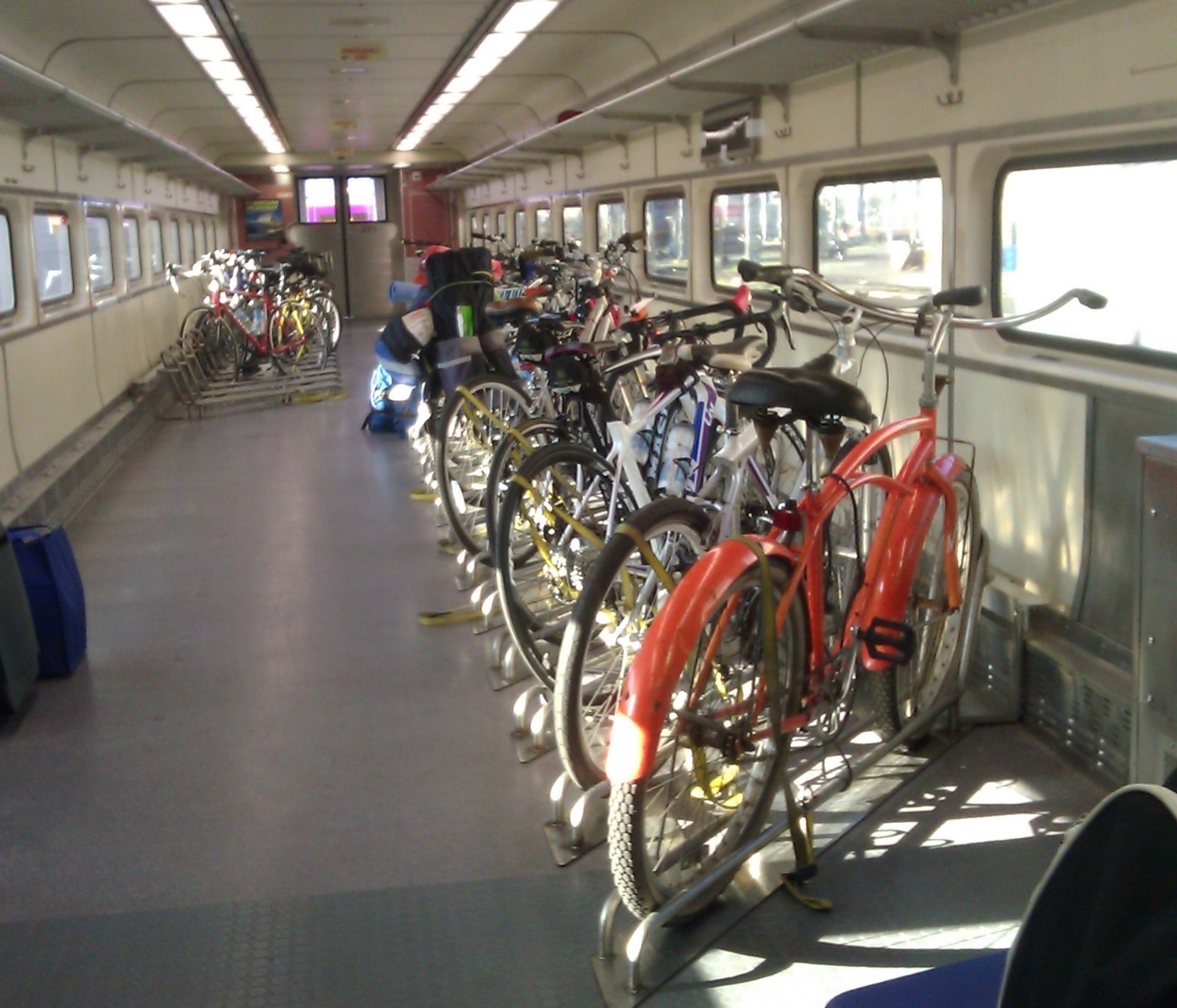Last weekend I finally took my bike on the Cape Flyer train to Cape Cod as part of a camping trip, and it was fantastic.
Now in its third year, the Cape Flyer has made getting to the popular vacation peninsula possible for car-free people (it's wasn't impossible; just not usually worth the hassle) and reasonable for those who aren't interested in the 12-mile traffic backups at the bridge. As a result it is very popular yet could benefit from improvements and potentially be a model for similar services elsewhere.
Where it excels
First off, it exists. The only other car-free options are a bus that sits in the same traffic as cars and a very expensive ferry. I won't even suggest biking because those bridges are possibly the scariest place I've ever tried to bike. Many people in Boston have never been to the Cape because it's just a pain to get there.
Useful connections are available in Buzzards Bay and Hyannis to island ferries and local buses, so you can actually go beyond the station, removing a major barrier to vacationing by transit. Because it's all coordinated, it actually works out and you won't miss the train because a shuttle is stuck in traffic.
The train is reasonably convenient with stops at South Station, Braintree, Brockton and a parking lot in Middleborough. The schedule, while very limited, provides for a Friday evening train and then an 8am outbound train Sat/Sun morning and 6:40pm return train Sat/Sun, which works for a weekend getaway.
An entire coach is dedicated for bikes and there's plenty of room for whatever junk you "need" on your vacation. There's no way I would try fitting my bike and all my camping gear under a bus and risk not being able to get back.
The price is reasonable. There's a cafe car and decent wifi.
Opportunities for Improvement
Frequency: As a weekend vacation oriented service, the limited schedule necessitates careful planning and leaves no room for error (miss the return train and you may be out of luck). There's also no chance of stopping in Buzzards Bay for a few hours to walk or bike the canal path before continuing over the bridge.
The service could be expanded by offering limited weekday service (one round-trip each in the morning and evening) and adding trips on the weekends to permit flexibility in travel plans and create a new option for Cape Cod residents to visit Boston.
Additional stations would offer more options to those traveling by bike and provide more convenient bus and shuttle connections. A station is currently being built under the Bourne Bridge on the south (Cape) side of the canal, which opens up more options and keeps both bikes and shuttle buses from having to use the dangerous bridge. Sandwich and West Barnstable have old train station which could be reactivated.
Travel Time: Once the train reaches the cape it operates with speed restrictions because the track south of the canal is designed for slower freight trains. The 2-hour 20-minute trip could be significantly faster with some track upgrades.
Local Transit: The Cape Flyer ends in Hyannis and cannot easily be extended further east as no rail line exists. While there are useful bus connections at the Hyannis Transportation Center, most are slow local, hourly routes designed more for local residents' needs like work and food shopping than those of visitors. Investments in more frequent connecting local transit service and new express/shuttle service to points east and west would make traveling beyond Hyannis more feasible and give travelers more options. Either way, more information about these transit options should be more readily available on the train and in places riders are likely to be at other times (before planning their trip) like South Station or, uh, the internet.
Opportunities for similar services
The Cape Flyer has been a profitable venture so far, aside from one-time capital expenses (new stations, track upgrades, etc.) and could be a model for other experiments in regional rail service. The Berkshires and White Mountains come to mind. It's also a good time to rethinking our "commuter" rail system and how the schedules could better serve all types of regional travel (increased frequency, better stations, shuttles, coordination with local transit, and more).



